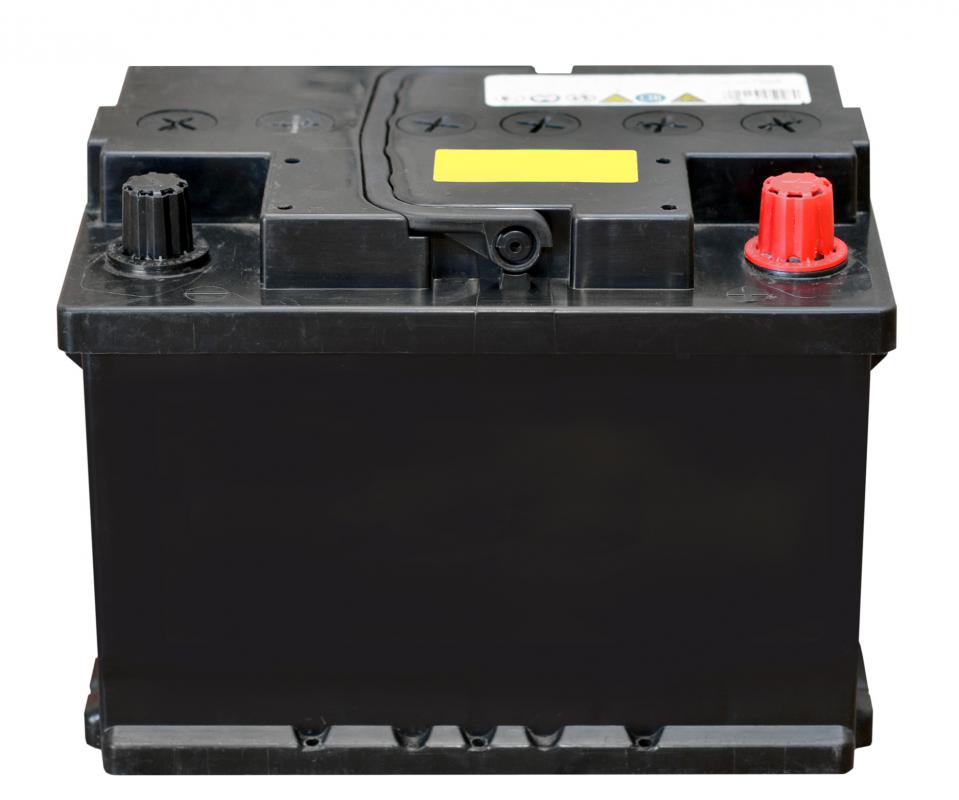At WiseGEEK, we're committed to delivering accurate, trustworthy information. Our expert-authored content is rigorously fact-checked and sourced from credible authorities. Discover how we uphold the highest standards in providing you with reliable knowledge.
What Are the Different Sulfuric Acid Products?
Of all the chemicals used in industry, sulfuric acid is involved in the manufacture of more products than any other. Sulfuric acid products may consist of the acid itself, at various concentrations — for example, as a laboratory reagent or in drain cleaners. Alternatively, it may form part of a product — for example, a car battery — or it may be used in the synthesis of other useful chemicals. Many of these chemicals are sulfates — salts of sulfuric acid — that directly involve sulfuric acid in the manufacturing process. They include fertilizers and medicinal products. Additionally, there are many products that involve sulfuric acid indirectly.
Among the most straightforward sulfuric acid products are drain cleaners that consist mainly of the acid itself at a high concentration — usually a 90%-95% sulfuric acid solution — although a dye may be added to it. Since sulfuric acid drain cleaner need not be of high purity to serve its purpose, impure waste acid is often used. It is generally effective in clearing drains blocked by organic materials, but must be used with care and should never be applied in conjunction with alkali-based drain cleaners.

Lead-acid batteries are one of the most important and common sulfuric acid products. Most motorized vehicles use batteries of this type. The sulfuric acid in batteries is usually a 30-40% aqueous solution. Alternating plates of lead and lead IV oxide are immersed in the solution and when the circuit is completed a current is generated by two chemical reactions that take place.

The lead reacts with HSO4- ions from the sulfuric acid to form lead sulfate, providing two electrons, and in the other reaction, the lead IV oxide reacts with the HSO4- ions, again forming lead sulfate, but this time accepting two electrons. The two reactions cause a current — a stream of electrons — to flow from the lead plates to the oxide plates. These reactions can be reversed by applying a current to the battery, so that it can be recharged when it runs down due to dilution of the acid and build up of lead sulfate.

Many sulfuric acid products are sulfates. These are the salts formed when sulfuric acid reacts with a base or a metal. One of the most important sulfate products is the fertilizer ammonium sulfate, made by combining ammonia and sulfuric acid: 2NH3 + H2SO4 → (NH4)2SO4. Ammonium sulfate provides sources of both nitrogen and sulfur that are easily useable by plants, but also tends to acidify the soil and is normally used with lime to counteract this effect. It can, however be used to intentionally lower the pH of soils that are too alkaline.
Another useful sulfuric acid salt is iron II sulfate — also known as ferrous sulfate — produced by the reaction of iron with sulfuric acid. It is used to boost iron levels in people suffering from some forms of anemia, as an iron supplement for pregnant women, and as a soil treatment to provide iron and reduce pH. Magnesium sulfate — also known as Epsom salts — is used to treat magnesium deficiency in soils and as a flavor enhancer in bottled water products. It also has a number of medical uses. Although some is manufactured from naturally occurring minerals, it is also produced by the reaction of sulfuric acid and magnesium oxide.
Sulfuric acid is also involved less directly in the manufacture of a vast range of other products. These include plastics, detergents, dyes and explosives. Although these products do not actually contain sulfuric acid or its salts, the acid plays a crucial role in their manufacture.
AS FEATURED ON:
AS FEATURED ON:













Discuss this Article
Post your comments